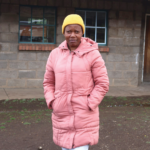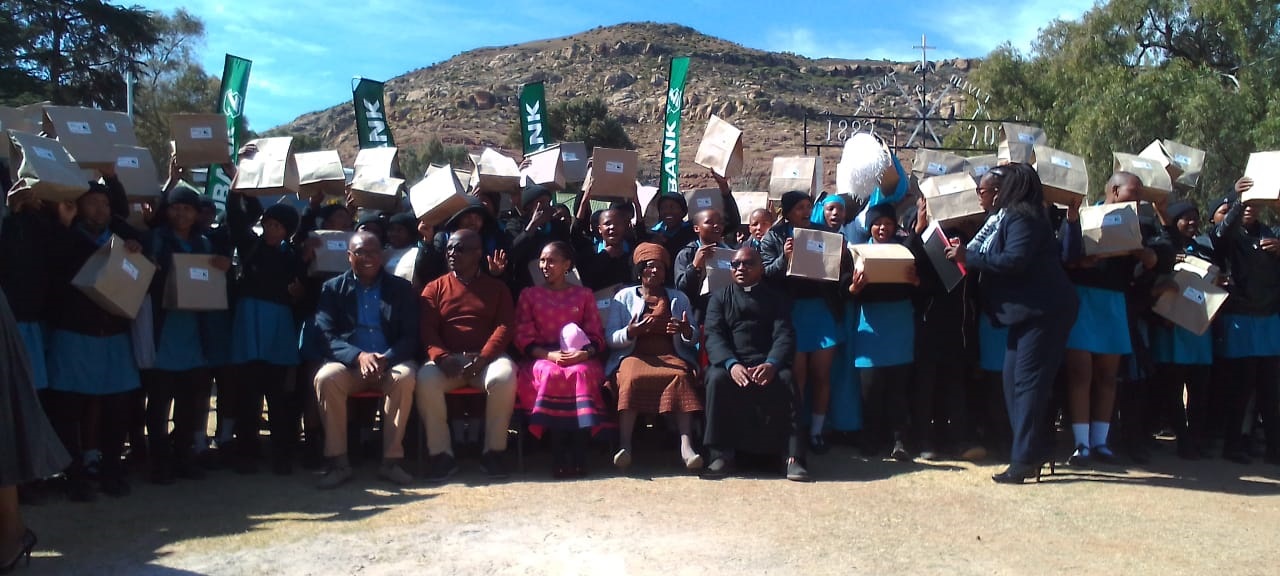Ntsoaki Motaung
Menstruation is an uncomfortable time for many women, whether due to a lack of access to sanitary pads or menstrual pain.
For women with disabilities, particularly those who are visually impaired, this period can be particularly challenging and distressing because they cannot see what is happening.
Julia Qaphai, a 45-year-old woman from Tšitsong in Mphaki, Quthing district, is one such individual who faces monthly challenges during her period. With visual impairment that has persisted for over 20 years, Qaphai navigates menstruation without being able to visually confirm it.
“When my period starts, I am alerted only by the excessive wetness that I feel,” Qaphai explained
“To confirm if I am really on my period, I have to visit the neighbour, where upon arrival, I undress and bend over so she can check from behind to see if there is blood. If there is, I know I need to take a bath.”
In cases where she cannot find someone to assist, Qaphai resorts to another method.
“If no one is available to help, I insert a finger to check for a blood smell. If I detect it, I know my period has started; if not, I assume it is just a discharge,” she recounted.
Since losing her sight in her early 20s, Qaphai has been living independently following her parents’ death. She revealed her experiences in an interview after the Menstrual Hygiene Day commemoration, held last week in Quthing Mphaki by the Ministry of Health, with support from the United Nations Population Fund (UNFPA). Menstrual Hygiene Day is celebrated globally on May 28 each year, and this year’s theme was: “Together for a #PeriodFriendlyWorld.”
Qaphai’s struggles are not limited to menstruation; she faces daily challenges as well. She manages some tasks independently but requires assistance for activities such as moving from home to other locations, including supermarkets and clinics. She also receives help when brewing traditional beer, a primary source of income for her.
“Apart from brewing beer, I receive support from the Ministry of Gender, Youth and Social Development through their disability grant program,” she notes.
Qaphai emphasises the importance of educational campaigns on menstrual hygiene, particularly for people with disabilities, as she feels they are often overlooked. “To other visually impaired people, remember that visual impairment is not the end of the world. It doesn’t mean you must depend on others for everything. Everyone has their talents and should strive to live up to them. Believe in yourselves and pursue whatever you can,” she urges.
Nosenot Makolomane, a Village Health Worker from Tšitsong and a close acquaintance of Julia, describes her as incredibly resilient.
“Julia is one of the strongest women I know. She actively works to make a living without waiting for others to provide for her,” Makolomane said.
Makolomane further explains: “Even with her disabilities, Julia manages tasks that I find difficult. I sometimes seek her assistance, and she excels at various household chores. We only help prepare fire for brewing beer; she handles everything else herself.”
UNFPA Representative Innocent Modisaotsile emphasises that International Menstrual Day, celebrated on May 28, was established to address global inadequacies in menstrual health and hygiene.
“The theme underscores that no one should be held back or disadvantaged due to menstruation. It also aims to combat stigma,” Modisaotsile stated.
UNFPA reports that poor menstrual health and hygiene undermine fundamental rights and exacerbate social and economic inequalities. Limited resources, exclusion, and shame impact human dignity, while gender inequality, extreme poverty, and harmful traditions can further intensify these issues.
Among its initiatives, UNFPA supports menstrual health and hygiene through educational programs, safe sanitation facilities, and dignity kits containing essential items such as soap, supplies, and underwear, especially in displacement camps.
Summary
- “To confirm if I am really on my period, I have to visit the neighbour, where upon arrival, I undress and bend over so she can check from behind to see if there is blood.
- “If no one is available to help, I insert a finger to check for a blood smell.
- She revealed her experiences in an interview after the Menstrual Hygiene Day commemoration, held last week in Quthing Mphaki by the Ministry of Health, with support from the United Nations Population Fund (UNFPA).

Your Trusted Source for News and Insights in Lesotho!
At Newsday Media, we are passionate about delivering accurate, timely, and engaging news and multimedia content to our diverse audience. Founded with the vision of revolutionizing the media landscape in Lesotho, we have grown into a leading hybrid media company that blends traditional journalism with innovative digital platforms.










